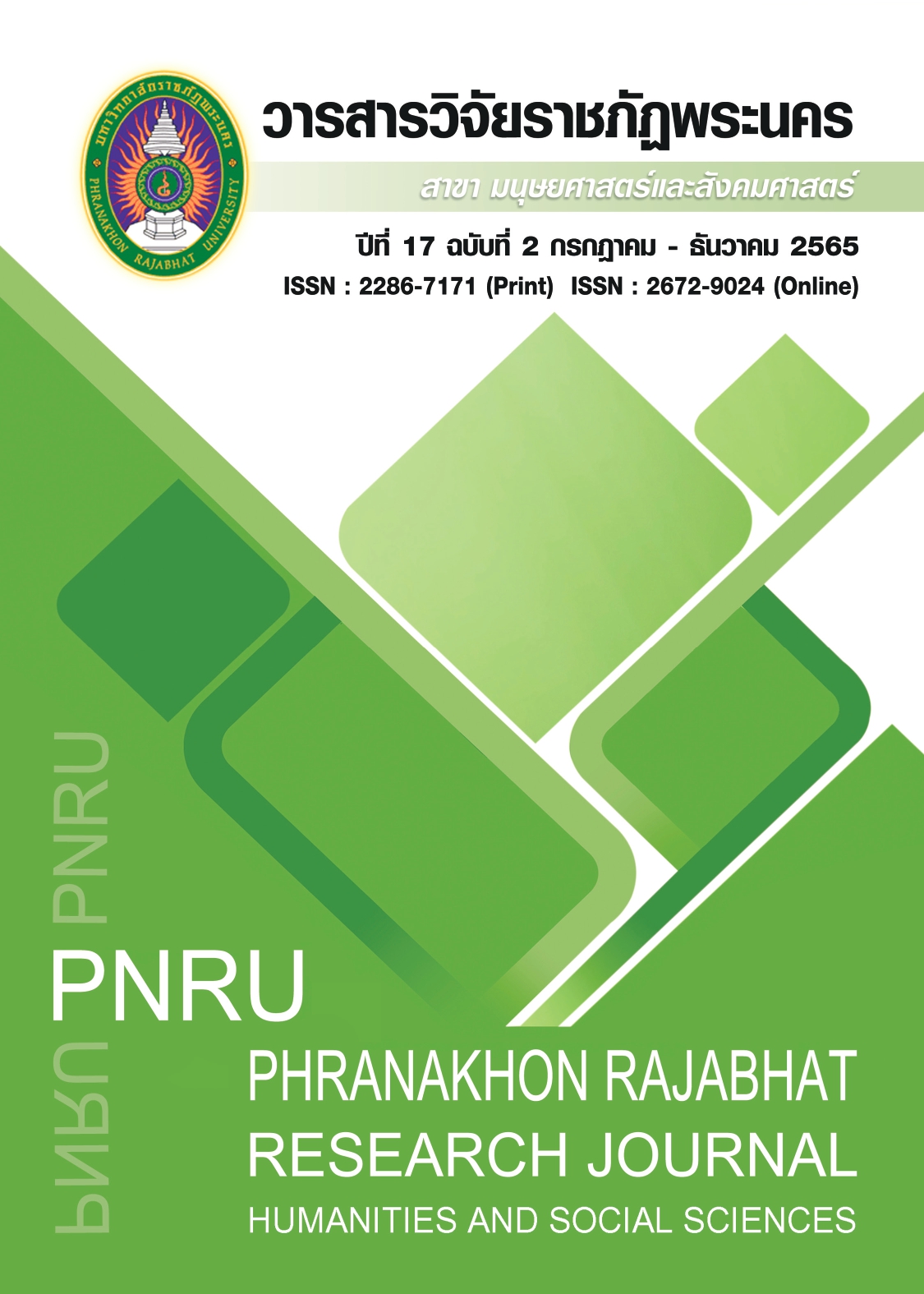ONBOARD SAFETY SITUATION AWARENESS OF THE LOW-COST AIRLINES’ CABIN CREW
Main Article Content
Abstract
The purposes of this research were to examine the cabin crew’s onboard safety situation awareness of the low-cost airline and to study the guidelines to enhance the situation awareness related to the low-cost airline cabin crew’s onboard safety as a suggestion to the airlines. The sample employed in this research was 30 cabin crews of a low-cost airline based at Suvarnabhumi Airport and was obtained by the purposive sampling method. The research instrument was the interview form. The descriptive method was used to analyze and synthesize the collected data. The data from the in-depth interview were analyzed as the primary data and then compared to the secondary data, which were both related documents and research papers. The results showed six issues affected by the situation awareness: 1) Experience; all cabin crew agreed that the increase in situation awareness was influenced by experience. 2) Habituation to the environment; most cabin crews agreed that it affected the decrease in situation awareness. 3) Care and value; the majority of cabin crew agreed that both care and value had an impact on the increase in situation awareness. 4) Safety knowledge; all cabin crew agreed that this improved situation awareness.
5) Duration and frequency of perception; most cabin crews agreed that it affected the increase of the situation awareness and 6) Pattern of stimulus; all cabin crew agreed that the pattern of the stimulus affected the increase of the situation awareness. To improve situation awareness, the cabin crews suggested that the cabin crews should share information about unsafe situations on their flights and that situation awareness content be added to recurrent training.
Article Details

This work is licensed under a Creative Commons Attribution-NonCommercial-NoDerivatives 4.0 International License.
Each publish articles were copyright by Phranakorn Rajabhat University
Any contents which appeared in each articles in the journal were authors personal opinion. It did not relate to Phranakorn Rajabhat University and other instructors in the university. Each authors would take responsibility on their articles. If there are any mistake, the authors will take responsibility themselves
References
Airports Council International. (2017). Twelve Common Human Error Preconditions. Retrieved from https://skybrary.aero/articles/human-factors-dirty-dozen
Brahmaputra, P. (2018). The organization communication that effecting to cabin crew operation. (master's thesis) Aviation management Civil aviation training center.
Civil Aviation Authority of Thailand. (2021). Air operator certificate requirements Issue 02 revision 00. Bangkok: Civil aviation authority of Thailand.
Kao, K.-Y., Spitzmueller, C., Cigularov, K., & Thomas, C. L. (2019). Linking safety knowledge to safety behaviours: a moderated mediation of supervisor and worker safety attitudes. European Journal of Work and Organizational Psychology, 28(2), 206-220.
Kitticharudul, D. (2014). Factor affecting attitude and awareness of risk management a case study of an import export company. Master of Business Administration Program, Nation University.
Pautad, N. (2006) Increasing awareness of cervical cancer prevention among farmer housewives in Pa Nai sub-distrect, Phrao district, Chiang Mai province. Master of Education (Health Promotion), Chiangmai university.
Siriwitchayaporm, A. (2018) Factors affecting to the culture awareness of undergraduate students. (master's thesis). Kasetsart University Kamphaengsang campus.
International Civil Aviation Organization. (2014). Doc 10002: Cabin crew safety training manual. International Civil Aviation Organization.
International Civil Aviation Organization. (2018). Safety Management Manual DOC 9859 fourth editions. International Civil Aviation Organization.
International Civil Aviation Organization. (2019). State of Global Aviation Safety ICAO. Safety Report 2019 edition. Bangkok: International Civil Aviation Organization.
Verplanken, B. & Orbell, S. (2003). Reflections on Past Behavior: A Self-Report Index of Habit Strength. Journal of applied social psychology, 33(6), 1313-1330.
Wattanayothin, A. (2010). Measuring information security awareness: case study: Headquarter of Provincial Electricity Authority. (master's thesis). Thammasat University.
Worapanich, N. & Kidsom, A. (2019). Exploratory Factors for Awareness and Accessibility of the Universal Health Care System in case self-employed people in Bangkok MUT. Journal of Business Administration, 16(1), 126-153.
Yoosakul, N. (1990). The passenger service excellence of Thai airways International cabin crew. (master's thesis). National institute of development administration.


